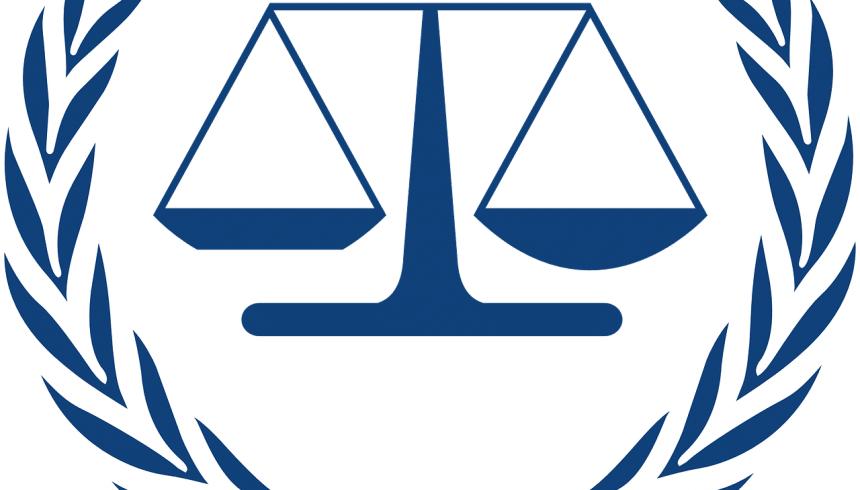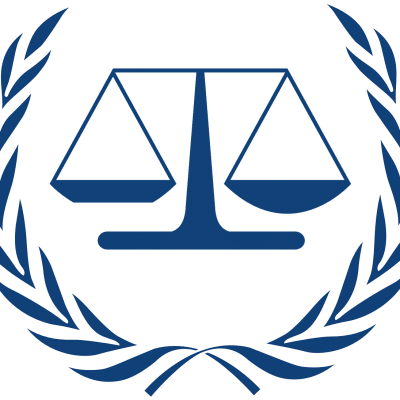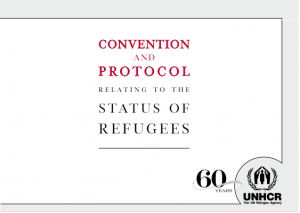
Around the world JRS has a mission to accompany, serve as companions and advocate for the rights of refugees and other forcibly displaced persons. We walk alongside individuals who have made the incredibly difficult decision to flee their homes as they no longer feel that they are safe. Many will enter other countries in an attempt to find the security that was taken away from them. However, not all of those whom we encounter would be seen as refugees in the context of international law.
So who is recognised as a refugee in law? Why are some individuals given the protection of refugee status and others not? Surely any individual fleeing war is a refugee?
In the first in a series of law blogs, we begin to clear up some of these common questions.
Who is a refugee?
There are many definitions of a refugee, ranging from the most restrictive to the most inclusive. The definition which most people – and states – recognise as the working definition is in the 1951 Convention Relating to the Status of Refugees (“the Convention”). Its most commonly referred to as the ‘UN definition’.
Article 1 A(2)[1] of the Convention defines a ‘Refugee’ as an individual who has a, “well-founded fear of being persecuted for reasons of race, religion, nationality, membership of a particular social group, or political opinion, is outside the country of his nationality and is unable or, owing to such fear, is unwilling to avail himself of the protection of that country; or who, not having a nationality and being outside the country of his former habitual residence as a result of such events, is unable or, owing to such fear, is unwilling to return to it”.
This is a lengthy legal definition. There’s an awful lot held in those 81 words which we need to break down. Taking it phrase by phrase:
- Has a well-founded fear – the person must be able to show that persecution is likely to happen. Assessment of this element is both subjective and objective, taking into consideration, for example, the overall situation in the country but also any experience of past events giving rise to a fear of future persecution.
- of being persecuted – an act of persecution must be “sufficiently serious[2]” either in itself or through repetition, but does not have to be physical violence. Persecution can be cumulative, arising from different actions or violations or deprivations of core human rights. Legal prosecution may become persecution where it is disproportionate or discriminatory. For example, flyposting may be a criminal offence and it might not be persecution simply to be arrested or fined for it, but being beaten up in the police van because the posters criticised the authorities, threatened with more serious treatment, or being given a long prison sentence, would amount to persecution.
- Is being persecuted for reasons of race, religion, nationality, membership of a particular social group, or political opinion (“often referred to as Convention Reasons[3]”) – The persecution arises for, or is related to, a specific reason. The reason can be attributed, i.e., something perceived by the persecutor/s but not actually the case, e.g. a person may be persecuted for suspected membership of a political organisation even if they are not a card carrying member.
You may notice that fleeing war is not, included as a Convention Reason. Fear of harm in civil war falls outside the Convention[4]. Many people fleeing war will also be facing persecution for a Convention Reason but if somehow they are not, they may qualify for humanitarian protection instead. (see below)
- Is outside the country of their nationality – Internally displaced people are not covered by the Refugee Convention. Whether seeking asylum in a foreign embassy in your country would bring you under the convention or not is a complex issue.
- Is unable or, owing to such fear, unwilling to seek protection from the country of their nationality – Usually an individual fears persecution from the state, however, they may also fear persecution from a party or organisation who are not officially part of the state, even in some cases opposed to the state or from non-State actors, which can include family members.
The UK Regulations state “Protection shall be regarded as generally provided when the [state] actors…take reasonable steps to prevent the persecution…by operating an effective legal system for the detection, prosecution and punishment of acts constituting persecution or serious harm, and the person…has access to such protection”.
- The Convention definition of ‘Refugee’ also refers to people who do not have a nationality and who are outside the country of their “former habitual residence”. This refers to stateless people, and distinguishes from people who have left the country of their nationality (see above). Not all stateless people are refugees, however, the reasons for leaving their former habitual residence will be examined in line with the Convention definition.
Understanding what those 81 words mean is the start of grasping the complexities of international law governing refugees. The assessment of whether someone meets the criteria set out in these words requires the analysis of constantly changing country information and case law as well the application of national and international legislation and policy, which is also constantly developing. If an individual is found not to be a Refugee within the strict confines of the Convention, they might still be given sanctuary on other grounds, but the criteria are, again, very specific.
What is humanitarian protection?

In UK law, if someone is not found to be a refugee within the strict confines of the Convention, they may be considered for a grant of Humanitarian Protection under the UK Immigration Rules. This is meant to ensure people are not returned to their countries to face the death penalty or torture or in serious civil/international conflict situations. In most countries the determination of refugee status – deciding who is and who isn’t a refugee – is carried out by the government. It is a general legal principle that the burden of proof lies with the person submitting the claim (the applicant), and in refugee cases this is no different. However, it is usually unlikely that an applicant will have all of the documentary evidence that might support their case, especially when many people arrive without personal documents[5].
Due to this, UNHCR recognise that the duty to establish the facts is shared by the applicant and the examiner (in the UK, the Home Office), and in some circumstances the examiner will have to produce the necessary evidence.[6] But as we know many may be found not to meet the strict legal criteria for recognition as a refugee.
If you felt unsafe and had to flee would you take the threatening letters you’d received with you? Would you have had time to take photos of the threats of violence you were receiving?
Who is a refugee at JRS?
In the UK and across the globe, JRS works with individuals who are in need of help and support even if they do not meet all the criteria of the Convention. For those with whom we work, this definition of who is a refugee is too restrictive and would leave many individuals without support. JRS therefore extends the definition of ‘Refugee’ to include victims of armed conflict, erroneous economic policy or natural disasters; those persecuted for humanitarian reasons; and to those internally displaced who have fled their homes but not actually crossed any borders.
In our next blog piece we will look at the legal issues people seeking protection in the UK face, how cases are decided and the implications of these decisions for those we seek to assist.
[1] https://www.unhcr.org/3b66c2aa10, p.14
[2] The Refugee or Person in Need of International Protection (Qualification) Regulations 2006 (“the Regulations”) further detail what constitutes an ‘Act of persecution’
[3] The Regulations further detail each of the Convention Reasons
[4] R v Secretary of State for the Home Department ex parte Adan [1998] Imm AR
[5] Para 196. Handbook and Guidelines on Procedures and Criteria for Determining Refugee Status, Geneva, December 2011
[6] Para 196. Handbook and Guidelines on Procedures and Criteria for Determining Refugee Status, Geneva, December 2011
Jess Javaherian is a qualified solicitor and senior legal caseworker at The Legal Project.
The JRS UK Legal Project has been running since January 2019 and provides specialist legal advice, representation, support and training to destitute refugees.
To help support the vital work done by the Legal Project donate to JRS now
Find out more about the JRS UK legal project and read a Q & A with the legal project team




